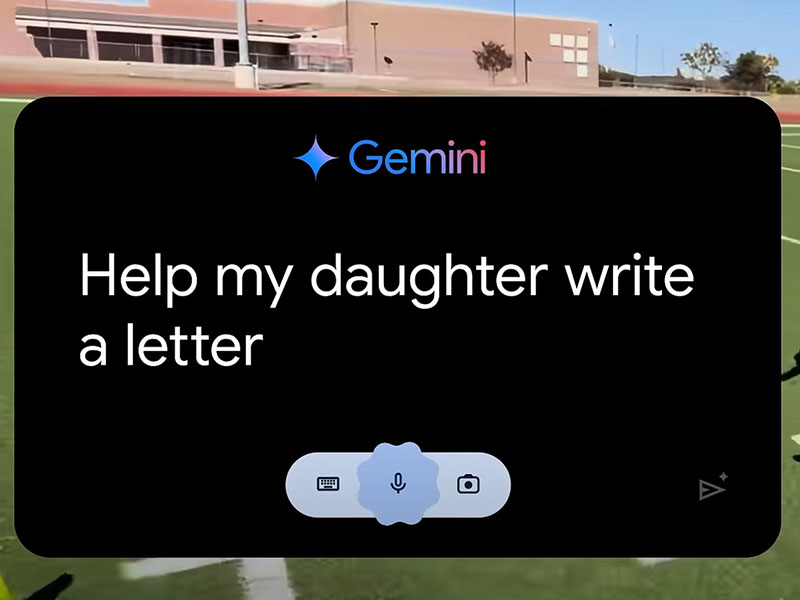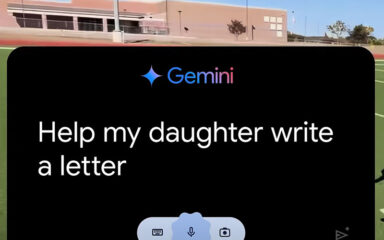
WE’RE BACK, BABY. I do not know WHAT was going on a couple of weeks ago, but it’s over, or at least over enough to let the grumpy, negative side of me get some critical content written.
The Olympics are, of course, a huge target for advertisers (and reasonably so), usually with somewhat generic ads about sportsmanship and unity and inspiration and whatnot. And of course you have your standouts, that really jerk the tears or take chances that pay off or just do stuff that’s really cool.
Alas, the biggest standout ads for me (and a lot of other people) this year didn’t stand out for positive reasons. Google and Nike, in particular, whiffed in a big way, airing ads that started with promising premises and then veered off in the kind of wrong direction you wouldn’t expect to see from a team of their respective size and prominence. And now that I’m free from my previous bout of positivity, I’ve got things to say about them.
Google, “Dear Sydney”
It’s a sweet idea: A father talks about how his young daughter, a runner, is a huge fan of Olympic hurdler Sydney McLaughlin-Levrone. And she wants to write her a fan letter. And he wants her letter to be “just right.”
So he sits down with his little girl and talks about what she finds so inspiring about Sydney, what she loves about running, what she hopes to accomplish in the future, how she uses Sydney’s passion and dedication to influence her own training no, he does not do that, he asks Google’s AI assistant, Gemini, to do it.
Help my daughter write a letter telling Sydney how inspiring she is. And be sure to mention that my daughter plans on breaking her world record. She says sorry, not sorry.
Is Gemini’s output “just right”? We’ll look past “Watching you compete is like witnessing magic unfold” (certainly something a nine-year-old would write) to suggest that the “just right” touch the letter is looking for might be any participation whatsoever from the little girl who idolizes Sydney, since even the Gemini prompt itself was written by her father.
I’ve made no secret of the fact that I value generative AI as a tool but also worry it’s being used in a way that kind of devalues the importance of human creativity in the work we produce (coughdownloadmyfreeebookcough). This ad is a great example of that, ignoring the utility of AI as a tool and applying it to the genuine, meaningful, personal human element instead. A little girl wants to express her heartfelt admiration, so her father hands the task over to an advanced algorithm without a heart.
You can contrast Google’s ad with Microsoft’s ad for its Copilot AI assistant. A father has Copilot summarize his morning calls so he has time to train in boxing with his son. An older woman asks it to analyze her heart rate data to help her train to be a runner. Another woman asks it to create a presentation for her about a surfing contest. And then the guy trains with his son, and the woman runs, and the other woman goes out surfing with her friends. The dude doesn’t ask Copilot to train his kid so he has more time to focus on work — he uses it as a tool to manage the boring stuff so he can have the genuine, heartfelt, human-to-human moment.
Luckily, much of the rest of, like, the world agrees with me about the pre-dystopian bleakness of Google’s Gemini ad. The ad received a lot of criticism after it launched, and Google eventually (wisely) pulled it entirely, saying in a statement, “While the ad tested well before airing, given the feedback, we have decided to phase the ad out of our Olympics rotation.”
Good call.
Nike, “Winning Isn’t for Everyone” (Wieden+Kennedy)
I will start out by saying that “winning isn’t for everyone,” as an overall concept, isn’t bad. It has legs. Executed properly, it could turn into some good stuff. Executed poorly, you get… this ad.
The ad, classically if smugly voiced by Willem Dafoe, outlines some of the qualities that do make athletes effective: single-minded, obsessive, never satisfied, obsessed with power, think I’m better than you.
And then there are the qualities that a) don’t actually contribute to athletic success — have no empathy, don’t respect you — and b) don’t actually apply to athletic competition, because wanting to win and wanting your competitor to lose don’t signify a lack of empathy or respect. They’re literally the point of sports.
And yes, I get the point that it’s supposed to be clever because the answer to “Am I a bad person?” is no, you’re not, this is sports. (Of course, if you do actually lack empathy and respect for others and are maniacal and irrational, yeah, you’re not great.) But that’s basically the reason it falls flat. It’s a weak point because from the very beginning, the viewer knows the answer to the question is no, which means nothing that happens beyond that is really subversive. And dragging it out for 90 seconds actually cranks it up to “tedious.”
But beyond that, even if the messaging had been on point, it’s just not the vibe. It’s not the moment. The Olympics and Paralympics are a time when (despite some obvious deviations, because competition is competitive) the emphasis is on achievement and sportsmanship and good will between countries and stuff. It’s a time when even people who don’t care a little bit about sports become so deeply emotionally invested in sports. The freaking Olympic creed talks about the importance being “not to win but to take part, just as the most important thing in life is not the triumph but the struggle.” Read the room, Nike.
(Interestingly, Nike even started the process by asking star athletes what winning means to them, and the unapologetically competitive sentiments didn’t include “my competitors can get bent and I hope they catch on fire.”)
The ad drew mixed reviews, pretty evenly divided between “you missed the point” and “no, the ad missed the mark,” but at least it didn’t appear to harsh the general public’s overall Olympic mellow. So there’s that.
All that said, winning is FOR WINNERS.
If you want to see some athletic competition that might inspire you to write fan letters your damn self and that doesn’t lack empathy or respect, the Paralympics started yesterday and will run through September 8. Wheelchair rugby (yes, clearly it’s my favorite) preliminaries start today, and you can watch them on Peacock, I’m pretty sure, and stream the replays online, and if you’ve never seen for yourself why they call it “murderball,” this is your opportunity. Go Team USA.
ETA: Totally meant to and forgot to mention that horses in Paralympic equestrian events get their own emotional support horse. Which I believe everyone should know. And now you do.

